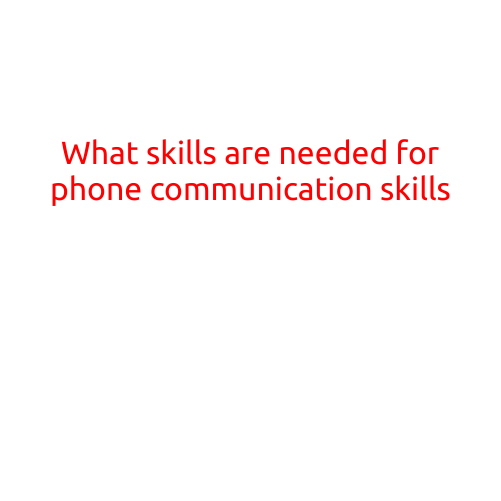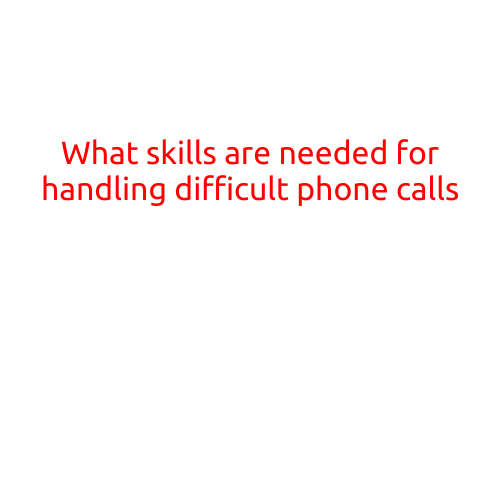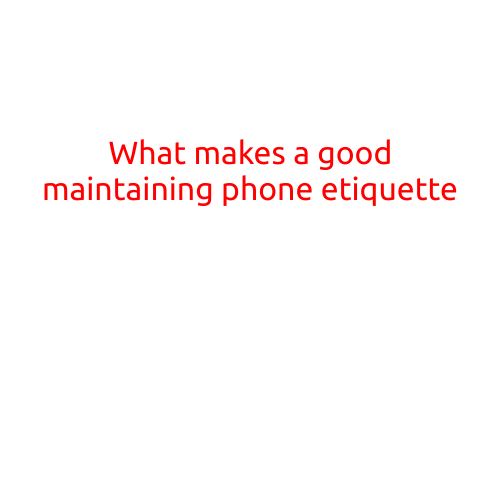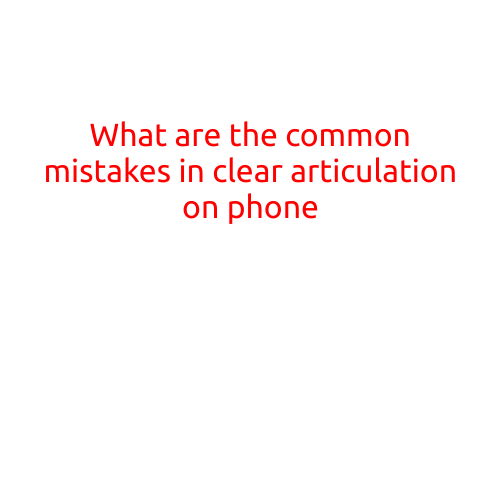
What Skills are Needed for Effective Phone Communication Skills?
In today’s fast-paced business world, phone communication is a crucial aspect of daily operations. Whether you’re a customer service representative, a salesperson, or a team leader, being able to effectively communicate over the phone is essential to building strong relationships, resolving issues, and driving results. But what skills are needed to excel in phone communication?
Active Listening
Active listening is the foundation of effective phone communication. It involves giving your undivided attention to the caller, focusing on their words, tone, and emotions, and responding accordingly. This requires you to:
- Pay attention to the caller’s words and phrases
- Avoid interrupting or finishing the caller’s sentences
- Clarify any misunderstandings or uncertainty
- Show empathy and understanding through verbal and non-verbal cues
Clear and Concise Communication
Clear and concise communication is critical to ensure that the message is understood by the caller. This includes:
- Speaking clearly and at a moderate pace
- Avoiding jargon, technical terms, or complex language
- Breaking down complex information into simple, easy-to-understand points
- Confirming understanding and summarizing key points
Empathy and Emotional Intelligence
Empathy and emotional intelligence are essential skills to handle difficult or emotional conversations over the phone. This includes:
- Recognizing and acknowledging the caller’s emotions
- Showing understanding and compassion
- Remaining calm and composed, even in challenging situations
- Fostering a sense of trust and rapport
Problem-Solving and Conflict Resolution
Phone communication often involves problem-solving and conflict resolution. To excel in these areas, you need to:
- Remain calm and objective
- Listen actively to the caller’s concerns
- Identify and analyze the problem or issue
- Offer solutions or alternatives
- Negotiate and compromise, if necessary
Adaptability and Flexibility
Phone communication is often unpredictable, and being able to adapt to changing circumstances is crucial. This includes:
- Handling unexpected issues or requests
- Being flexible with schedules and timelines
- Adapting to different caller personalities and communication styles
- Staying poised and professional under pressure
Technology Literacy
In today’s digital age, technology literacy is a must-have skill for effective phone communication. This includes:
- Familiarity with phone systems, such as call center software and phone menus
- Understanding of basic telecommunications technology, such as voicemail and email
- Ability to use technology to efficiently manage phone calls and escalate issues
Timing and Pacing
Timing and pacing are critical aspects of phone communication. You need to:
- Establish a rapport with the caller within the first few minutes
- Set a clear agenda and pace for the conversation
- Balance the need to gather information with the need to resolve the issue
- Avoid getting bogged down in unnecessary details
In conclusion, effective phone communication requires a combination of essential skills, including active listening, clear and concise communication, empathy and emotional intelligence, problem-solving and conflict resolution, adaptability and flexibility, technology literacy, and timing and pacing. By honing these skills, you can improve your ability to communicate effectively over the phone and drive success in your personal and professional life.





